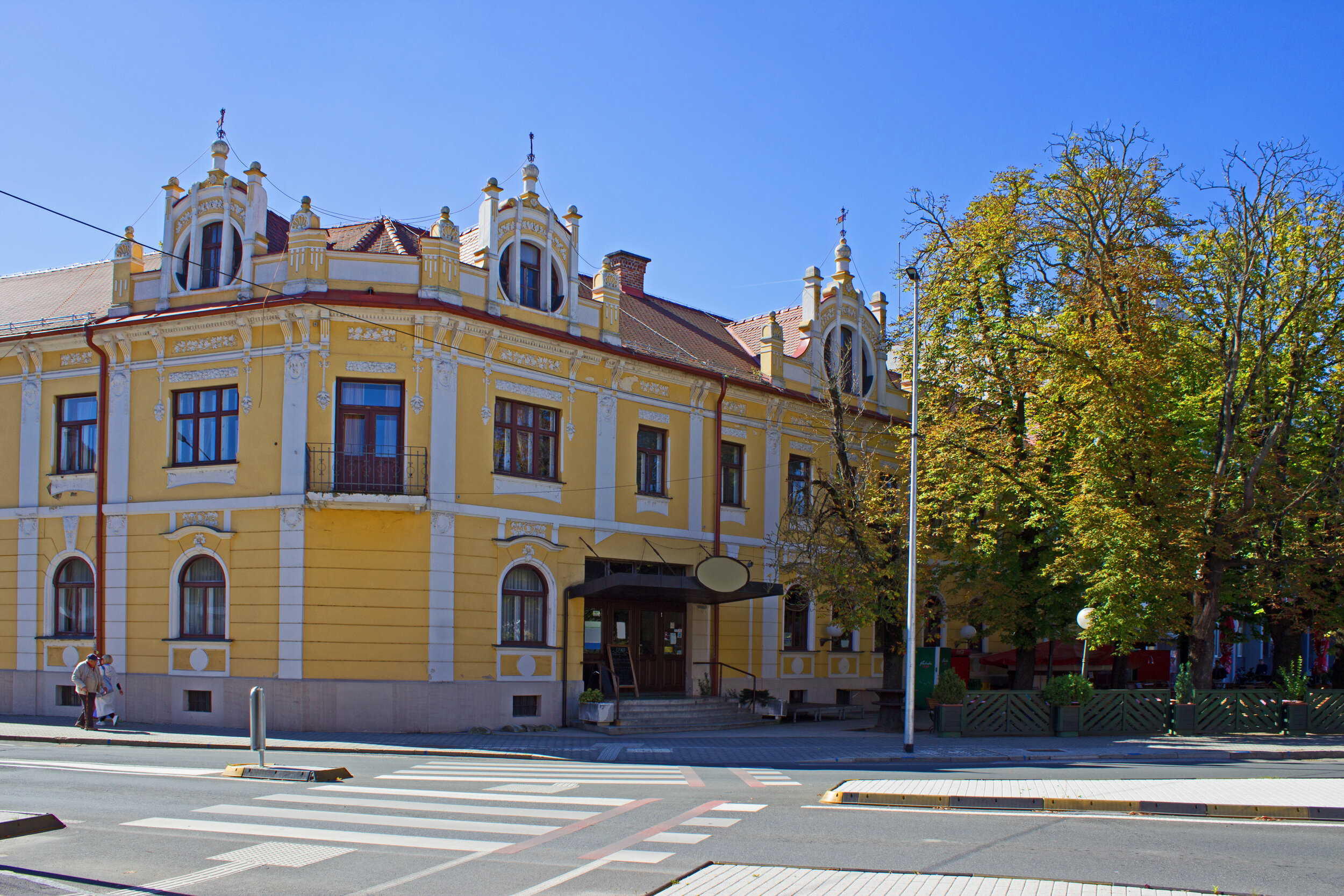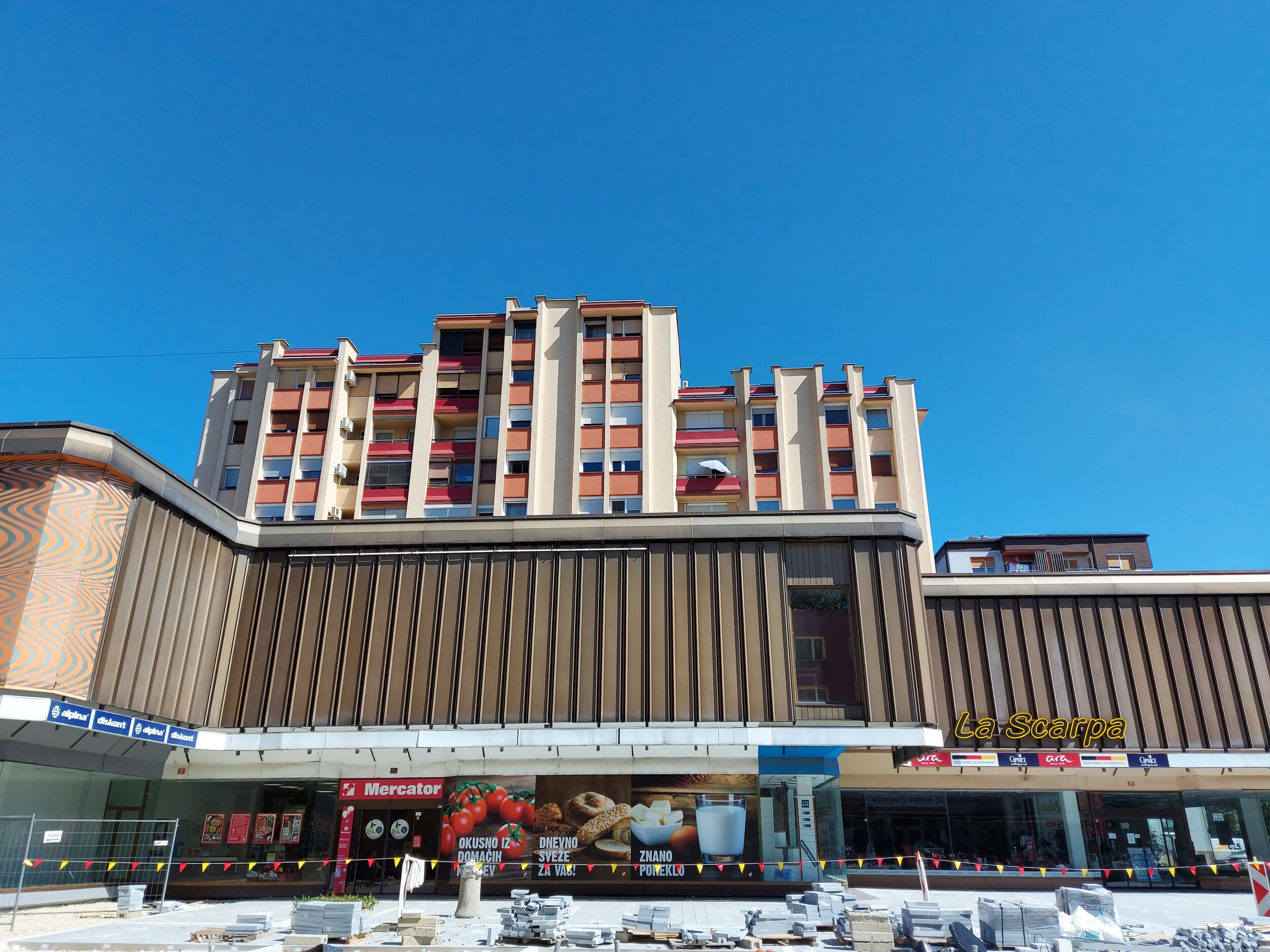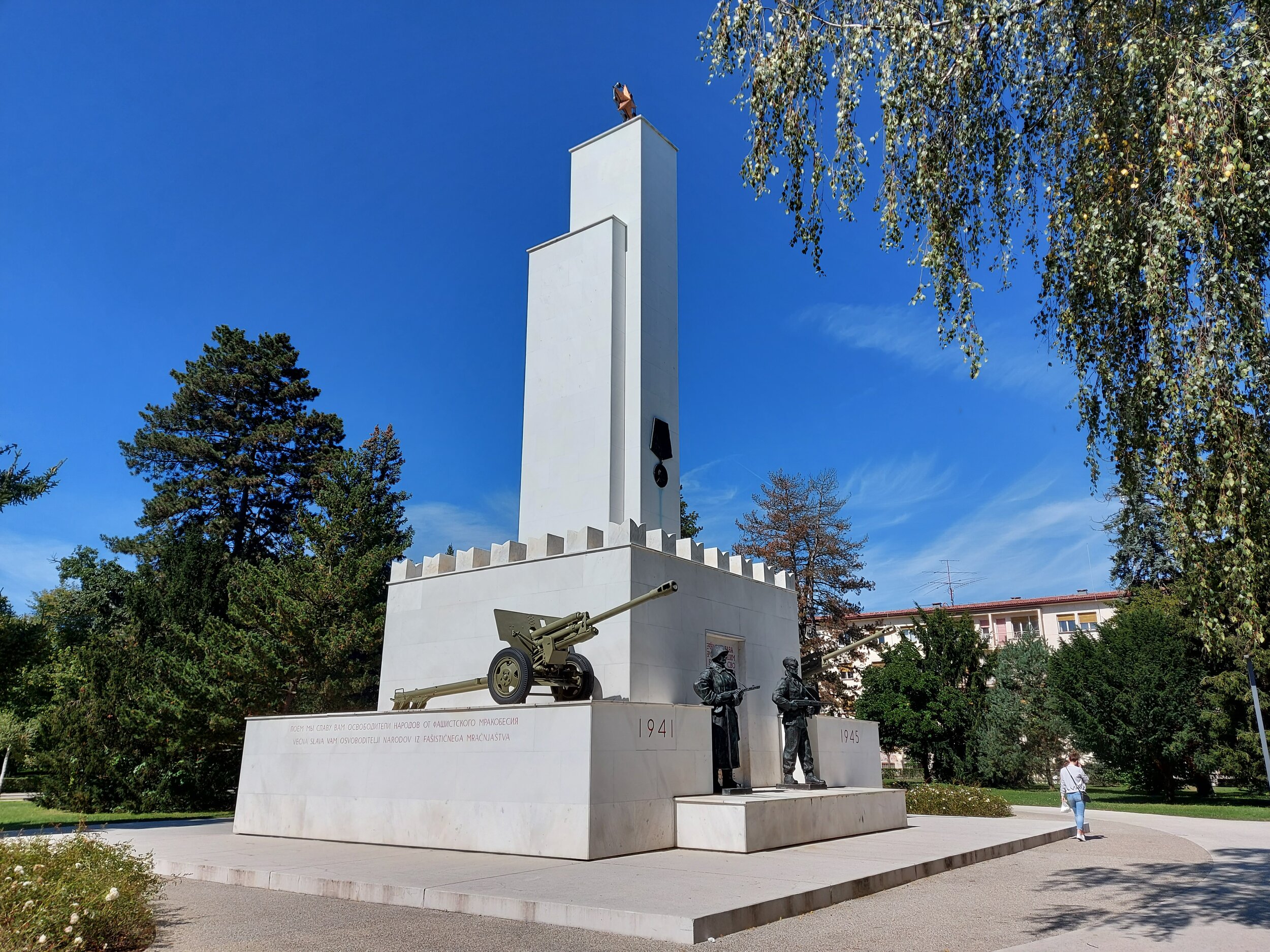12: Murska Sobota // Pay Attention To Your Friends
The famous balcony in Murska Sobota, Slovenia // © imarovich / shutterstock
‘Don’t go there. It is awful’.
She will remain nameless, but one of my closest friends is from Prekmurje, essentially from Murska Sobota, and she has always been the mythical being on whichever shoulder, telling me that a visit to the far eastern corner of Slovenia is a bad idea. She didn’t offer reasons why, she didn’t really need to. She had grown up there, she had escaped to the capital, where she was relatively free of provincial neurosis and a lack of cafe options. Why would I want to go to Murska Sobota, outside of voyeuristic curiosity?
Still, I went, on a train heading from Ljubljana to the border town of Hodoš, although I was only present for the Ptuj to Murska Sobota leg. The train was quiet, no great surprise there, but I was somewhat surprised by how many disembarked in the town known to the locals as Sobota and to the rest as Murska. Nothing is simple, though such a differentiation clearly is.
Murska Sobota is the administrative capital of Prekmurje, which should join some of the dots created by the first two paragraphs there. This is the very edge of Slovenia, the country’s most isolated area, where everything is a little different. A sizeable Hungarian minority will do that, and centuries of Hungarian rule will ram that home. The language spoken is a weird jumbling of the two, Slovene with a Magyar twang, one confusing language made even more incomprehensible thanks to its flirting with Europe’s most preposterous tongue. If Slovenia is a swan, Prekmurje is a goose.
I don’t mean it is violent, territorial and prone to honking, although my anonymous friend may say otherwise.
I clambered off the train and swanned towards the centre of town, half expecting a wacky world and half expecting more of the same, two similar sets of expectations that were stunted by it being a scorching Saturday afternoon. There wasn’t anyone on the streets, save for the contractors working on it.
The centre of Murska Sobota, currently under construction © John Bills
Murska Sobota’s centre echoed the town centres of Vojvodina, of pedestrian streets through Kikinda, Vršac, Pančevo and the rest, but I was acutely aware that I was only making these comparisons because of a prior knowledge of the presence of a Hungarian culture. Had I not known that, would I still compare Murska Sobota to Zrenjanin? Maybe it would have received the Slavonia treatment instead?
Travel has a strange relationship with maybes. Journeys are fuelled by them, as the intrepid venture off in search of ways to remove them from mental lists, for proof that something is rather than questions about whether it might be. All true, but travel also has a tendency to throw up a whole other set of maybes.
There weren’t so many maybes floating around the streets of Murska Sobota, because I seemed to be the only sentient being in town. All those who had left the train with me had disappeared. Everything was closed.
Left with little in the way of caffeine, I fled into the comforting arms of history, finding solace in events and stories of a time before myself. I traversed the makeshift walking route around the construction site and found a balcony, an ordinary gallery to the eye but one that once housed famous feet, or at least a famous proclamation. It was here, on May 29, 1919, that a schoolteacher by the name of Vilmos Tkálecz declared an independent Republic of Prekmurje, as the violence of World War I became political uncertainty and confusion. Everyone had a go at being in charge here, all the way back to the Stone Age, but the lion’s share of the centuries were held by the Kingdom of Hungary or the Habsburg dynasty.
World War I changed that, because World War I changed everything. Catholic priests and Lutheran ministers were doing most of the ruling in Prekmurje by this point, but those two branches of Christianity couldn’t agree on a forward plan. The priests had eyes on the newly-formed Kingdom of Serbs, Croats and Slovenes, while the ministers were far more interested in maintaining Hungarian rule. Interest in the latter was extinguished by the establishment of the Hungarian Soviet Republic, a communist state that was every bit as joyful as it sounds, a Russia-leaning creation that managed to bridge the divide between Catholicism and Lutheranism, giving the two a common enemy. Murska Sobota found itself at the centre of the this new hope, and Tkálecz found himself giving a speech from a balcony in the centre of town.
One week later, the Hungarians marched in and violently put a stop to it all, rounding people up and murdering them in plain sight. Brutality and repression at the hands of the Hungarian communists lasted nearly two months, before the Serbian army marched in and claimed the region, the beginning of a plan to conquer more territory and eventually create a border between the future Yugoslavia and the then-Czechoslovakia. That plan didn’t come to fruition, but Prekmurje was blended into Slovenia and the kingdom it found itself a named partner of.
A striking World War II monument in Murska Sobota, Slovenia © John Bills
In 2020, the balcony barely stood out, another corner terrace looking out over a road and a park, a park that is home to monument honouring the Red Army soldiers who helped liberate the town in 1945, the final act in a war that had seen one of Slovenia’s most significant Jewish communities all but wiped out.
It took until 2010, but that year saw Slovenia erect its first holocaust memorial, a respectful monument found at Murska Sobota’s train station. My visit to the town had been muted by poor timing and construction, by heat and by a lack of caffeine, although complaining about any of those while noting a sombre memorial is vapid at best. I was back at the train station, heading back towards Ptuj, promising Murska Sobota to return some other time, in the hope of doing justice to the town while simultaneously proving an old friend wrong.


